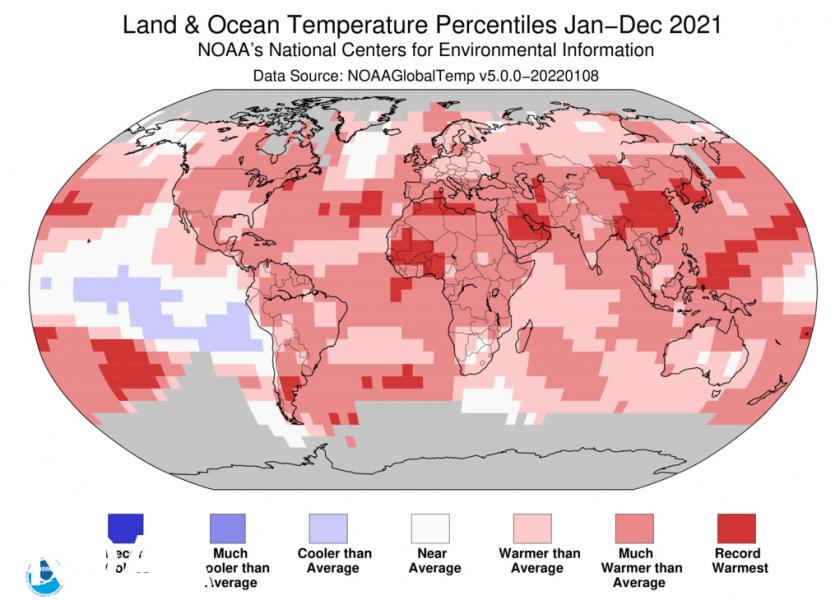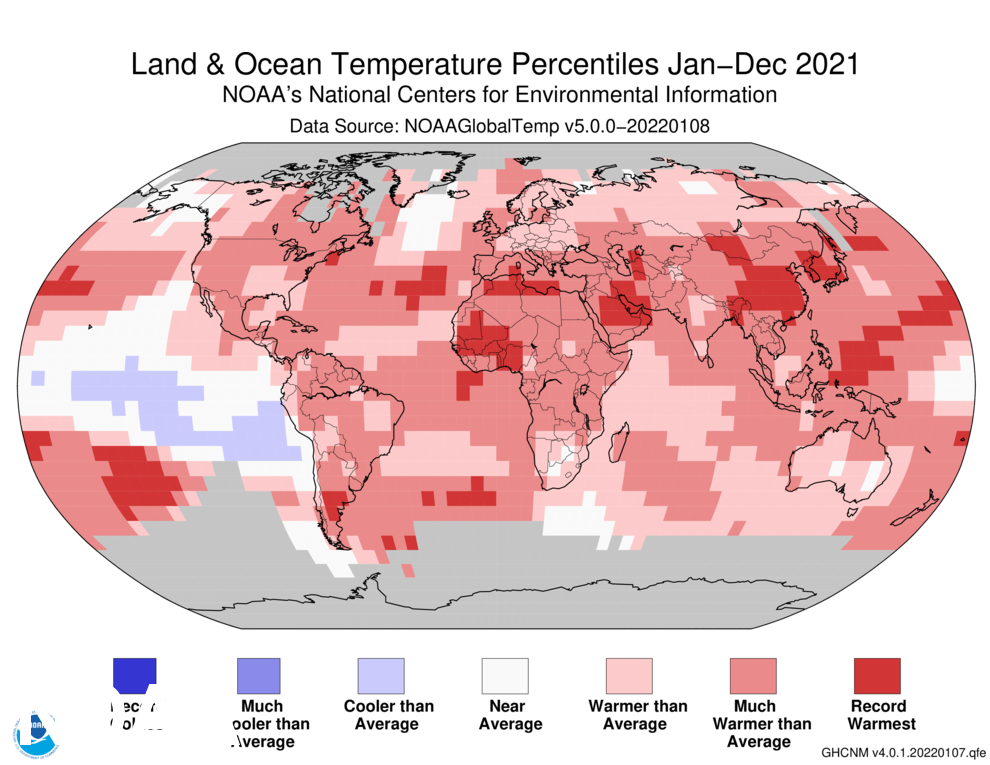Come On In: The Ocean Temperatures Are Hot

Last year was hot. It was so hot, 2021 now holds the record for the hottest ocean temperatures ever. That's according to an annual study published in "Advances in Atmospheric Sciences.”
Earth’s average land and ocean surface temperature in 2021 was 1.51 degrees °F (0.84 of a degree C) above the 20th-century average, according to officials at NASA and the National Oceanic and Atmospheric Administration (NOAA).

2021 was the 45th consecutive year since 1977 in which global temperatures ranked higher than the 20th-century average, per NOAA, providing yet another indication of the effect of climate change on the planet. High ocean-heat content can contribute to sea-level rise.
Researchers blame human activity for rising water temperature, because oceans absorb heat from the atmosphere.
“The increase in carbon emissions will lead to more greenhouse gases in the atmosphere,” says Matt Yarosewick, AgDay meteorologist. “If we have more of these, they almost act as a blanket. Some of the solar radiation from the sun will get reflected back into space, but the radiation that makes it to the ground will then have to deal with the greenhouse gases on the way back out.”
When the sun heats the ground, he says, the ground heats the air. The solar radiation is absorbed by the ground and is then released in the form of heat into our atmosphere.
“Some of that heat is allowed to escape through the atmosphere and back into space, while some is held in by the greenhouse gases,” Yarosewick says. “This will then cause a warming effect over time of our overall global temperature.”
Water will absorb any heat and if the global temperatures go up, then the ocean temperatures should follow that same pattern, he explains. This also causes stronger storms.
“The warmer the water, the more moisture will be allowed to evaporate and increase not only rain rates and heavy precipitation but also the ‘fuel’ for the storms increases,” Yarosewick says.
Additional NOAA weather findings for 2021:
- The average annual sea ice cover in the Arctic was approximately 4.08-million square miles — the ninth-smallest annual average cover recorded between 1979 and 2021. The last seven years (2015-2021) had an annual sea ice extent that ranked among the 10 smallest on record, according to data from the National Snow and Ice Data Centeroffsite link.
- There was an above-average number of tropical cyclones around the world in 2021, with a total of 94 named storms. This value ties with 1994 as the 10th-highest number of named storms in the 41-year record.
- December’s average temperature across global land and ocean surfaces was 1.49 degrees °F (0.83 of a degree C) above the 20th-century average. This value was tied with 2016 as Earth’s fifth-warmest December in 142 years







